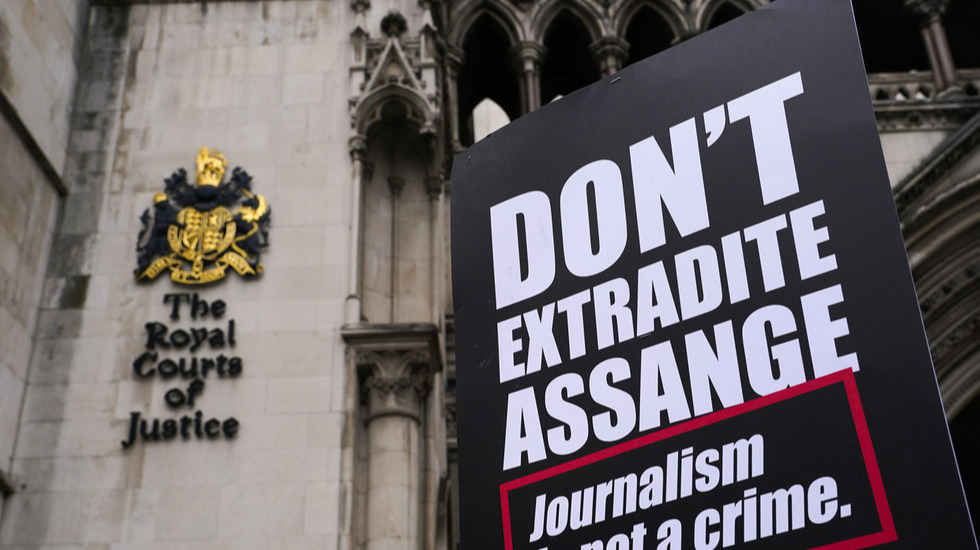
Free Julian Assange Now!!
London, October 28 (RHC)-- Coinciding with the hearing that studies the eventual extradition to the United States of Julian Assange, founder of WikiLeaks -- a session taking place at the High Court in London (UK) -- Aitor Martinez, lawyer of his defense team, gave an interview to RT, which he denounced that Washington criminalizes truthful information about the case.
The lawyer said that on the first day of the hearing, Assange could only follow the judicial session for a few minutes, via videoconference from the maximum security prison of Belmarsh, where he is being held. He almost immediately had to abandon the connection due to his deteriorating health condition. The journalist, he said, looked very thin and weak.
Martínez explains that, after Assange's arrest in April 2019, it was requested that he be admitted to a hospital center, given his health condition, but he was transferred to a maximum security penitentiary, which he said only aggravated his physical condition and made it difficult to communicate with him. Additionally, the COVID-19 pandemic worsened his situation, as he was practically isolated.
Assange's attorney said that he was restricted from maintaining a fluid and direct dialogue with his lawyers, as well as being present at the appeal hearing itself, something that the U.S. prosecutors were allowed to do.
He mentioned that the U.S. has offered the court certain guarantees for the WikiLeaks founder in case he is extradited, such as not being placed in a maximum security prison or subject to special measures.
The lawyer asserts that all those promises have been systematically violated by the U.S. in other extradition cases, and so the defense will make it clear in Thursday's session. "It is not a reliable country to hand over any person, within the framework of any diplomatic guarantee," he said.
Martínez considers that this "is a judicial action that affects the freedom of the press in the world as a whole, because what the U.S. is criminalizing is the publication of truthful information coming from anonymous sources, with which the commission of serious international crimes, such as the war crimes committed in Iraq and Afghanistan, has also been accredited."
In this sense, he maintains that this case sets a "very serious precedent for the community of free media in the world" -- which is why practically all human rights organizations have taken a stand against Washington.
"In the 21st century we are seeing a setback in basic freedoms, such as freedom of the press for the media and the right of access to information for individuals," he continued, stressing that the entire international community must take a stand against such a precedent.

